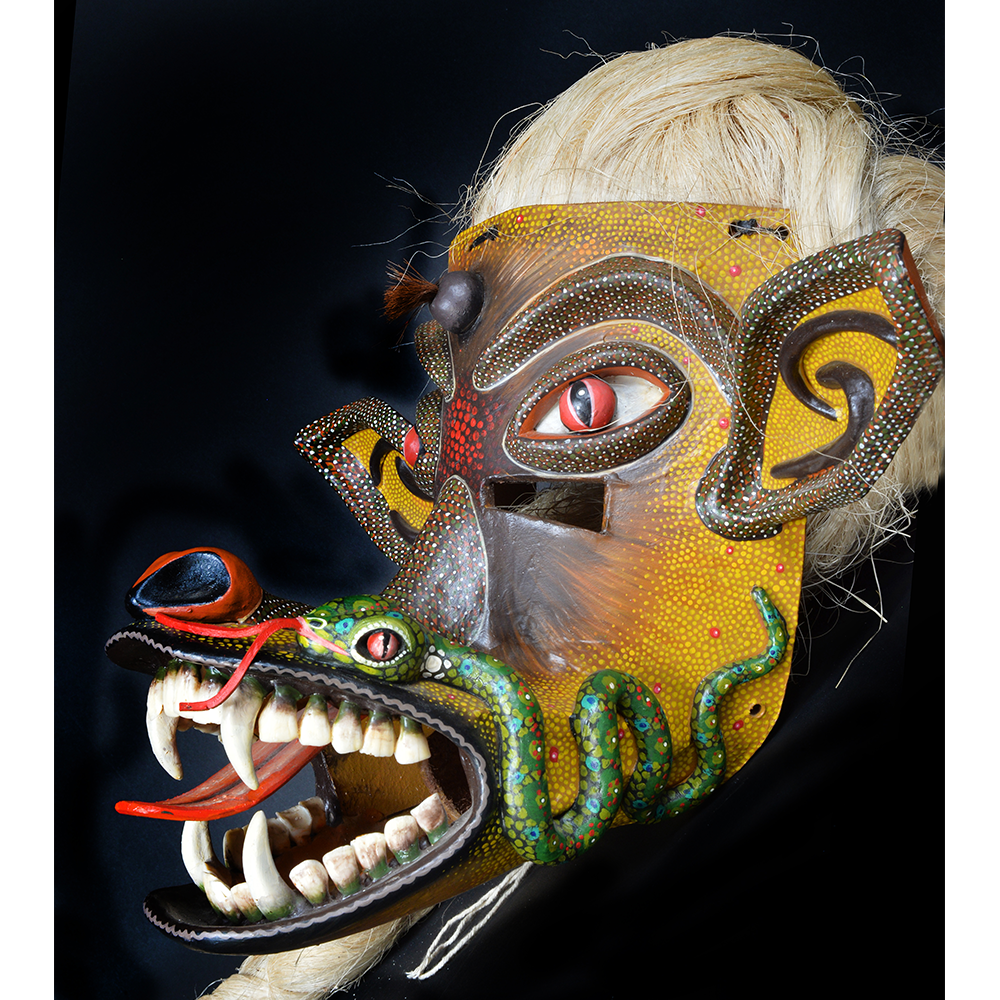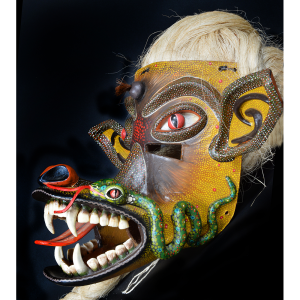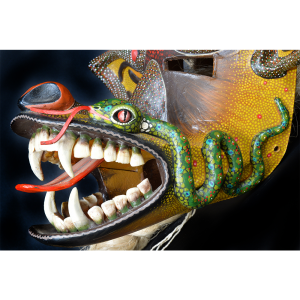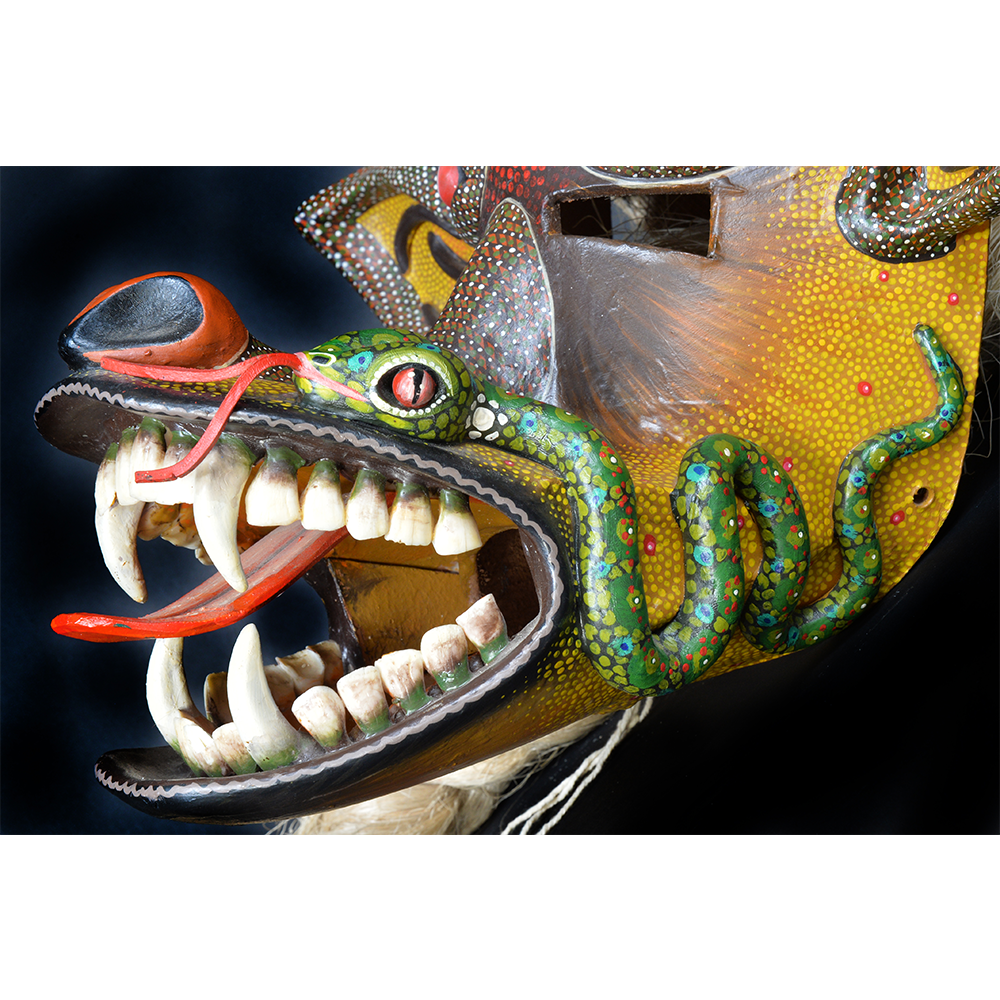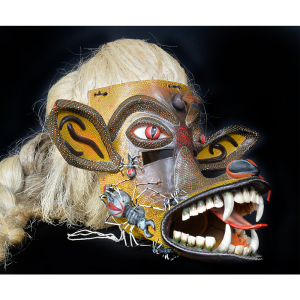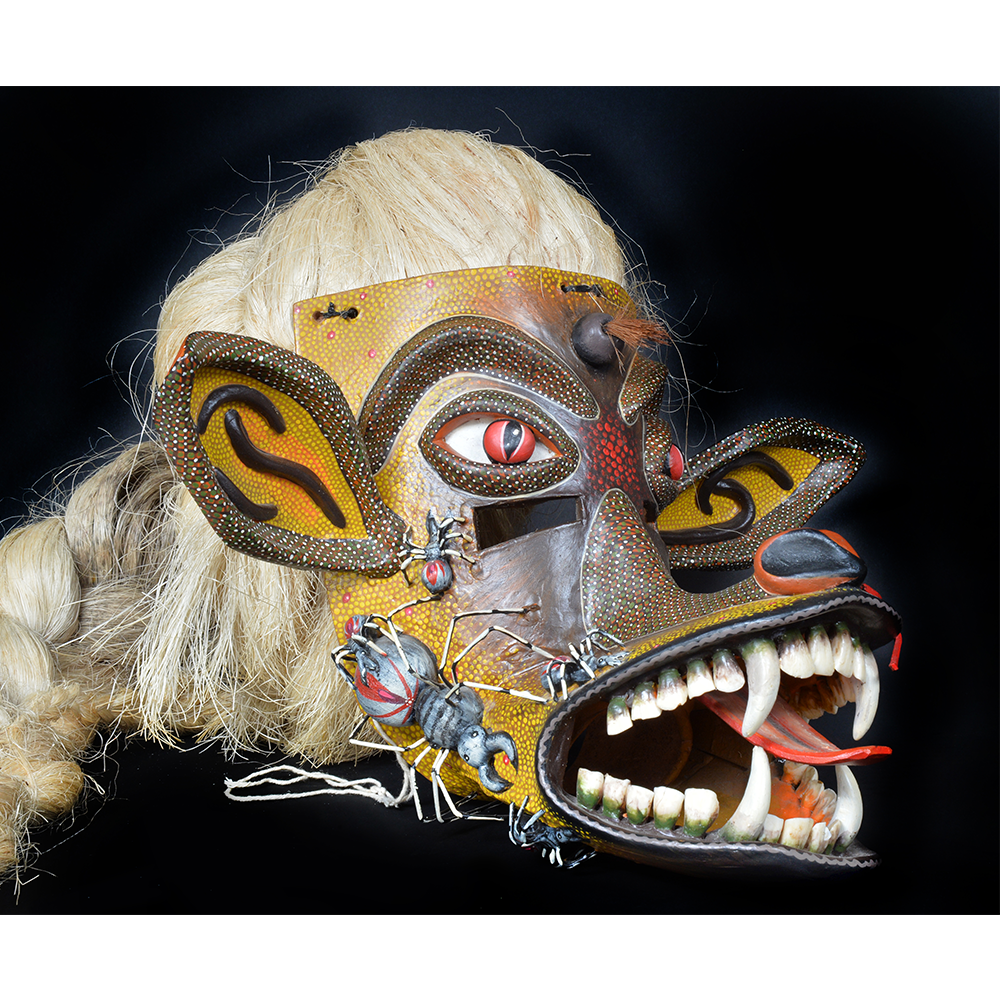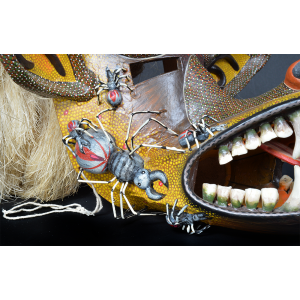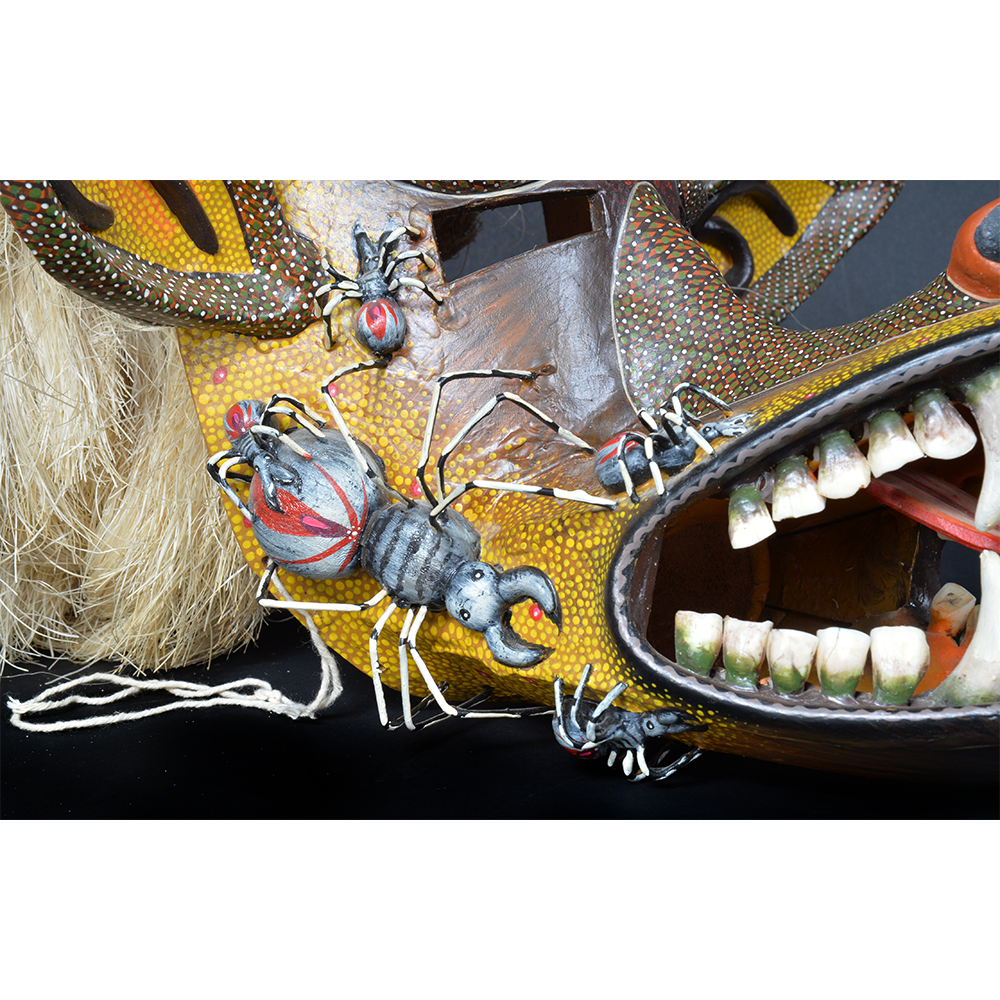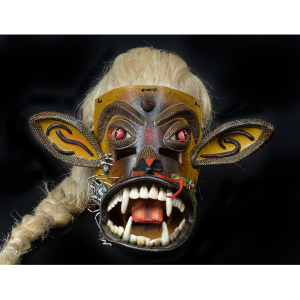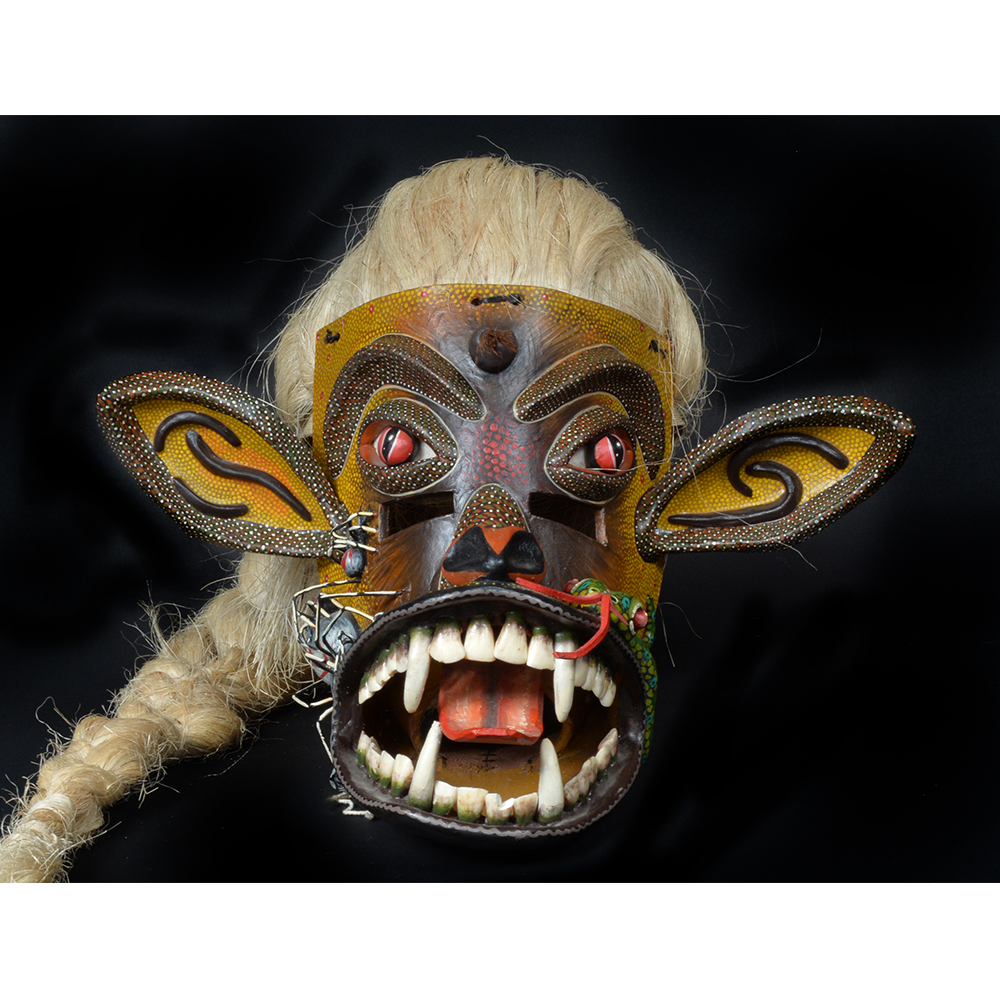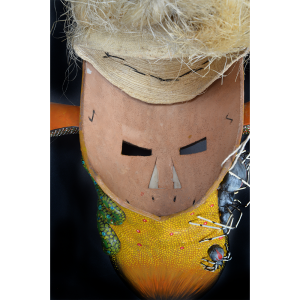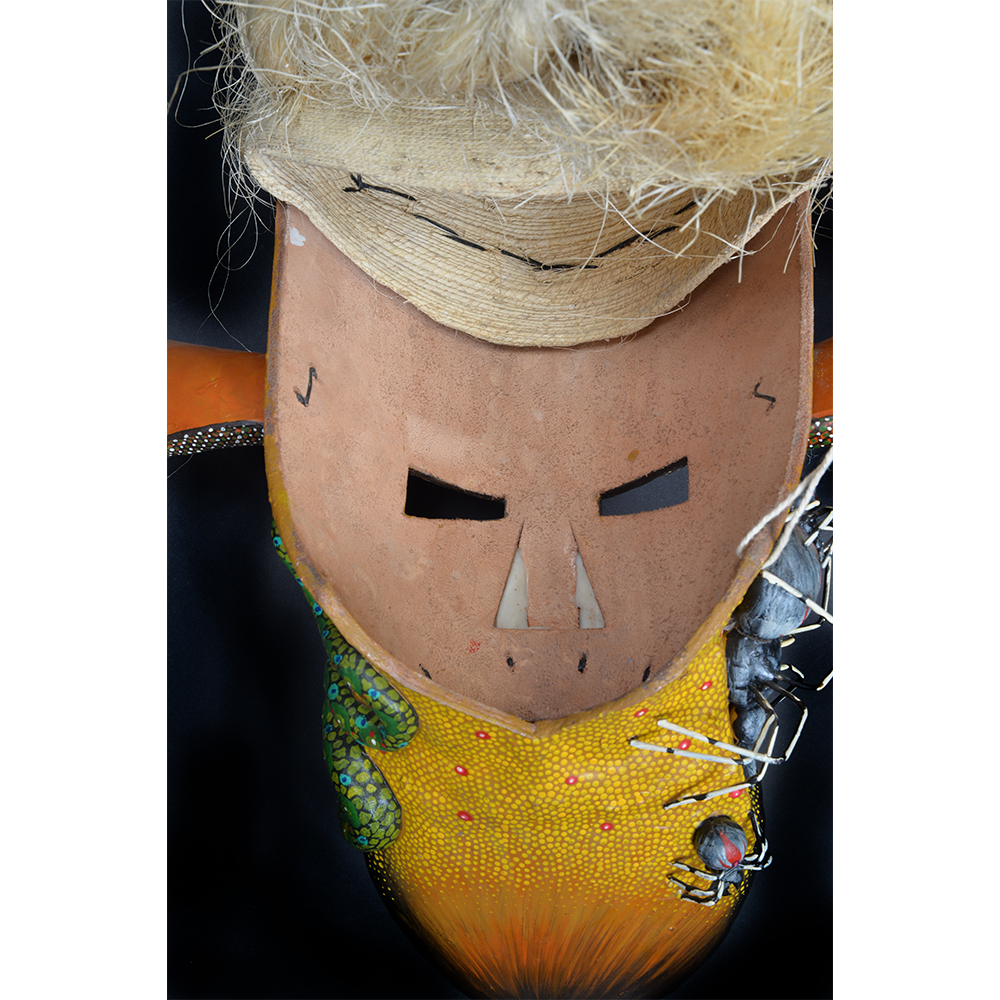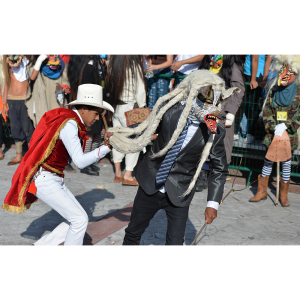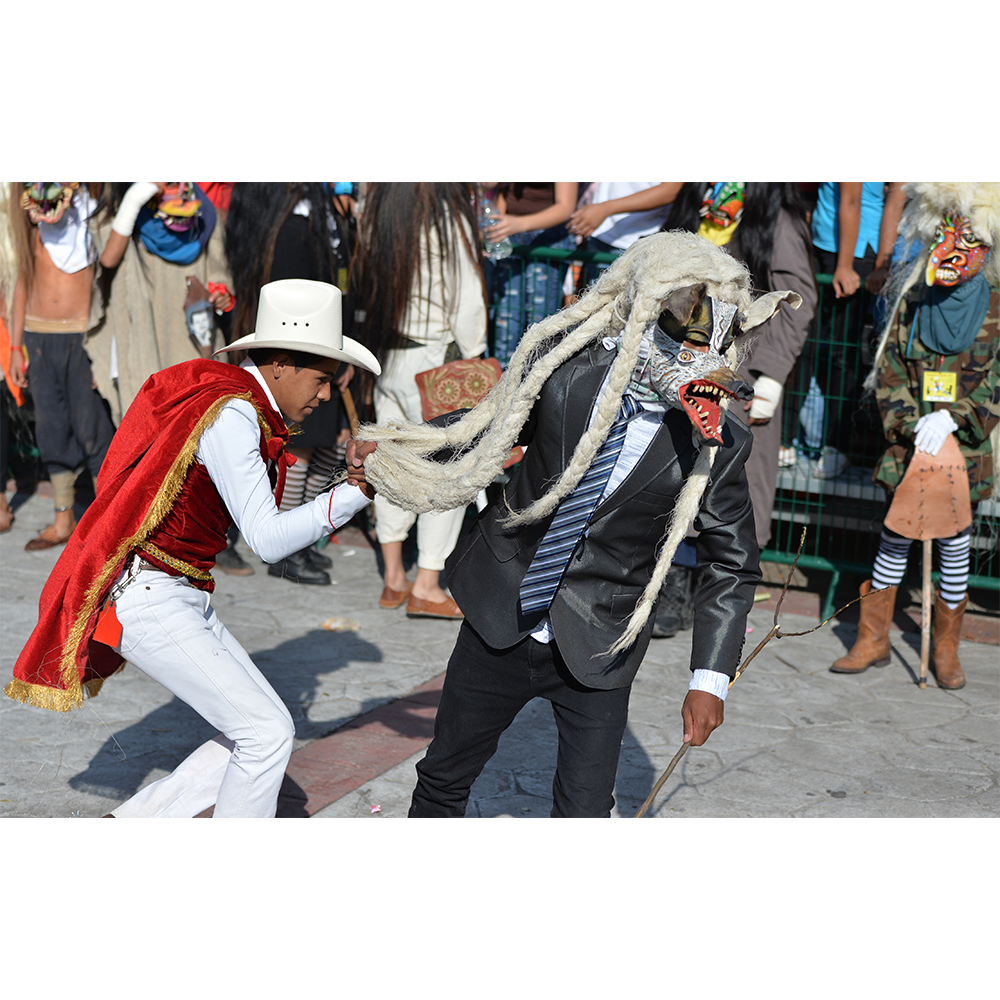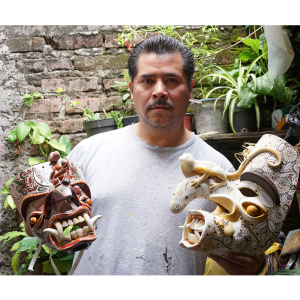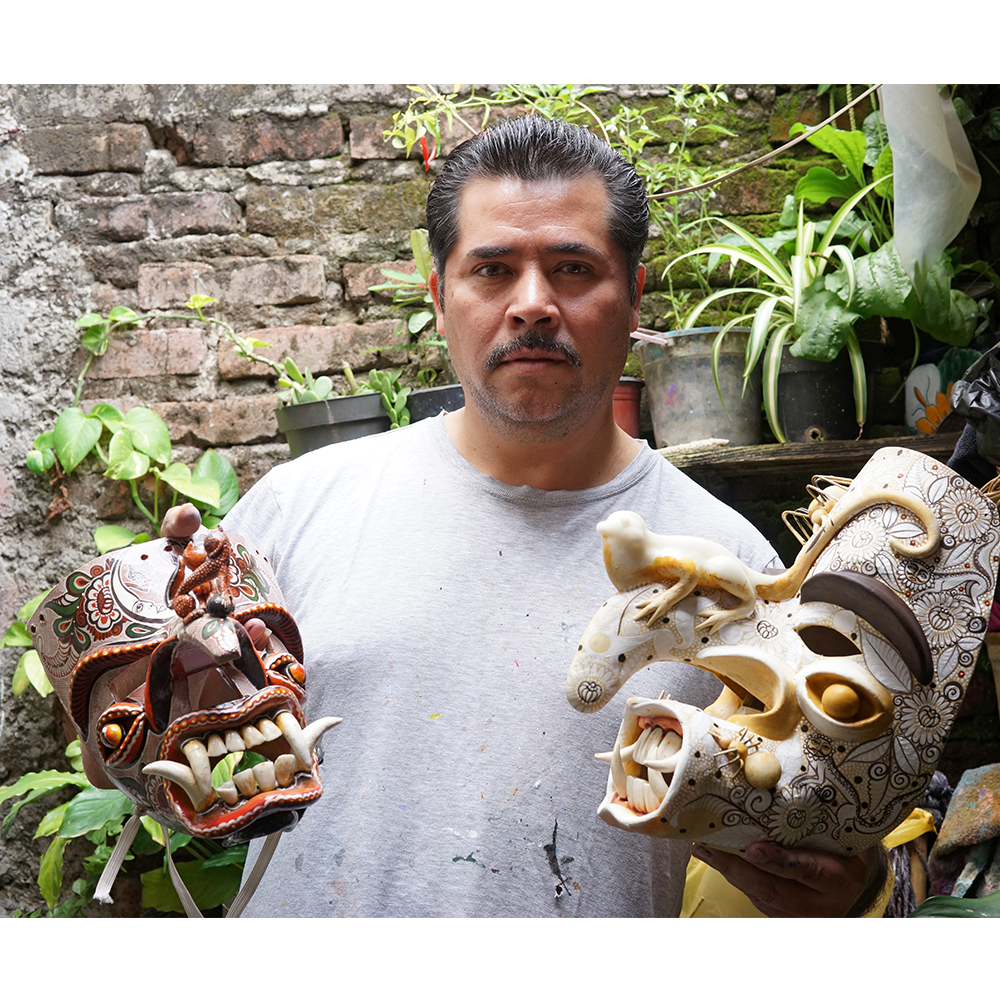TITLE: Tastoan Perro
TYPE: face mask
GENERAL REGION: Latin America
COUNTRY: Mexico
SUBREGION: Jalisco
ETHNICITY: Nahua
DESCRIPTION: Perra (female dog) mask for the Tastoanes dance
CATALOG ID: LAMX045
MAKER: Ubaldo Macías Bernabe, Tonalá (1972- )
CEREMONY: Fiesta de Santiago el Apostól
AGE: 2017
MAIN MATERIAL: leather
OTHER MATERIALS: acrylic paint; lacquer; glue paste; wire; thread; elastic bands; goat hair; ixtle fiber
In parts of Jalisco and Zacatecas, the holiday in honor of Santiago el Apostól (St. James the Apostle) is held every 25th of July. Celebrants carry spears and dress in long pants, leather chaps, and boots, with demonic masks made of wood (Zacatecas) or molded leather (Jalisco) covered with a montera (headdress) of goat hair, horse hair, or plant fiber. The festival commemorates a battle between the indigenous warriors of the area and conquistadors. The appearance of the tastoanes, who represent indigenous warriors, conveys their ferocity through sharp teeth, large noses, and snakes, lizards, scorpions and spiders for decorations.
During the celebration, tastoanes and either three kings wearing ceramic masks or three Aztec priestesses (one representing the Tonaltec queen Tzapotzintli, also known as Tzuapili oor Cihualpilli) carry an image of St. James along a parade route and dance to music carrying swords or whips, after which they make defiant speeches and engage in a mock battle (jugada) with a participant carrying a whip who represents St. James. At the beginning of the battle, the tastoanes carry in St. James as a prisoner and torture him, but he is rescued by his dog (perro), which this mask represents. The dog drives away the tastoanes with a stick and assists St. James, afterward supplying him with new sticks as he breaks them on the bodies of tastoanes. In most performances, the dog dies in the course of the battle. Nonetheless, at the end, all the tastoanes die and St. James is victorious. In some towns, an organization such as a Cofradía de Santo Santiago (Fraternity of St. James) organizes the event.
This specific mask was made by the award-winning craftsman Ubaldo Macías of Tonalá.
Click above to watch a short documentary about the tastoanes of Tonalá, Mexico.
